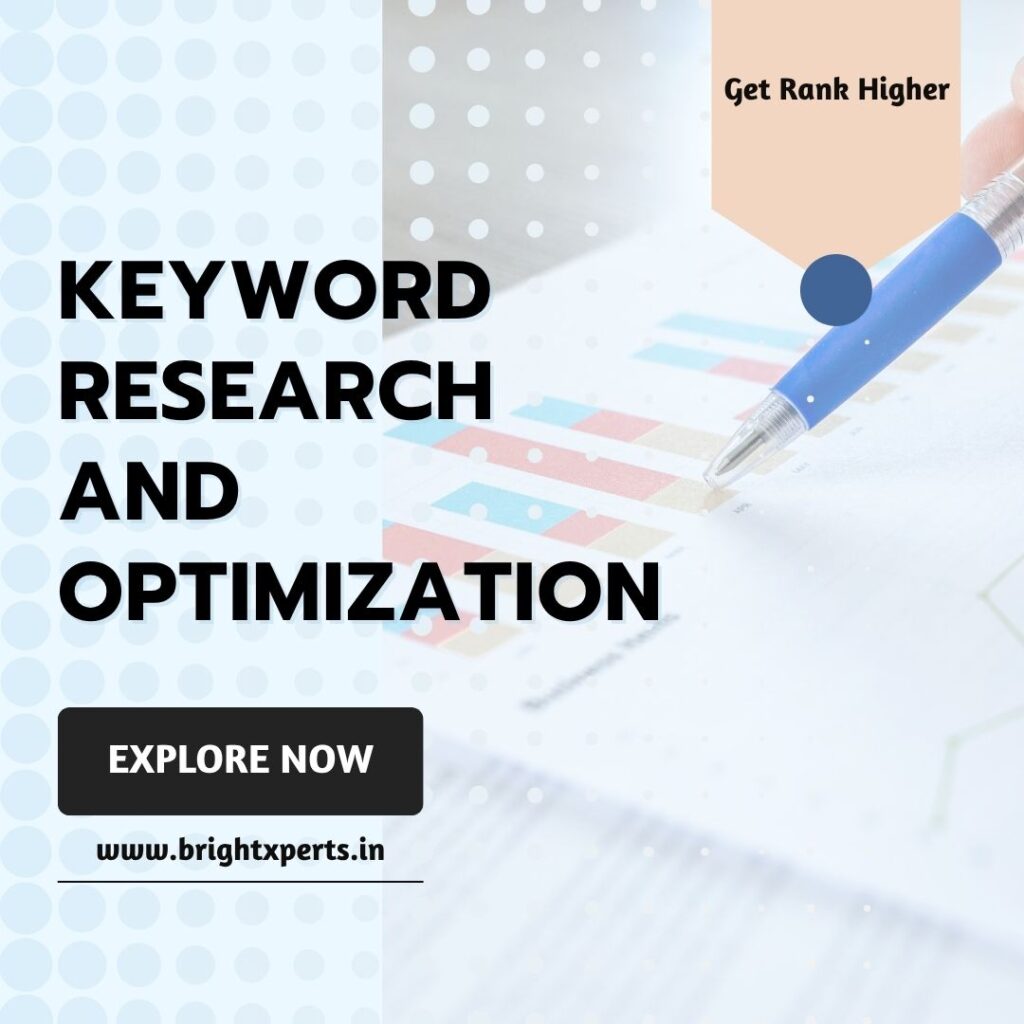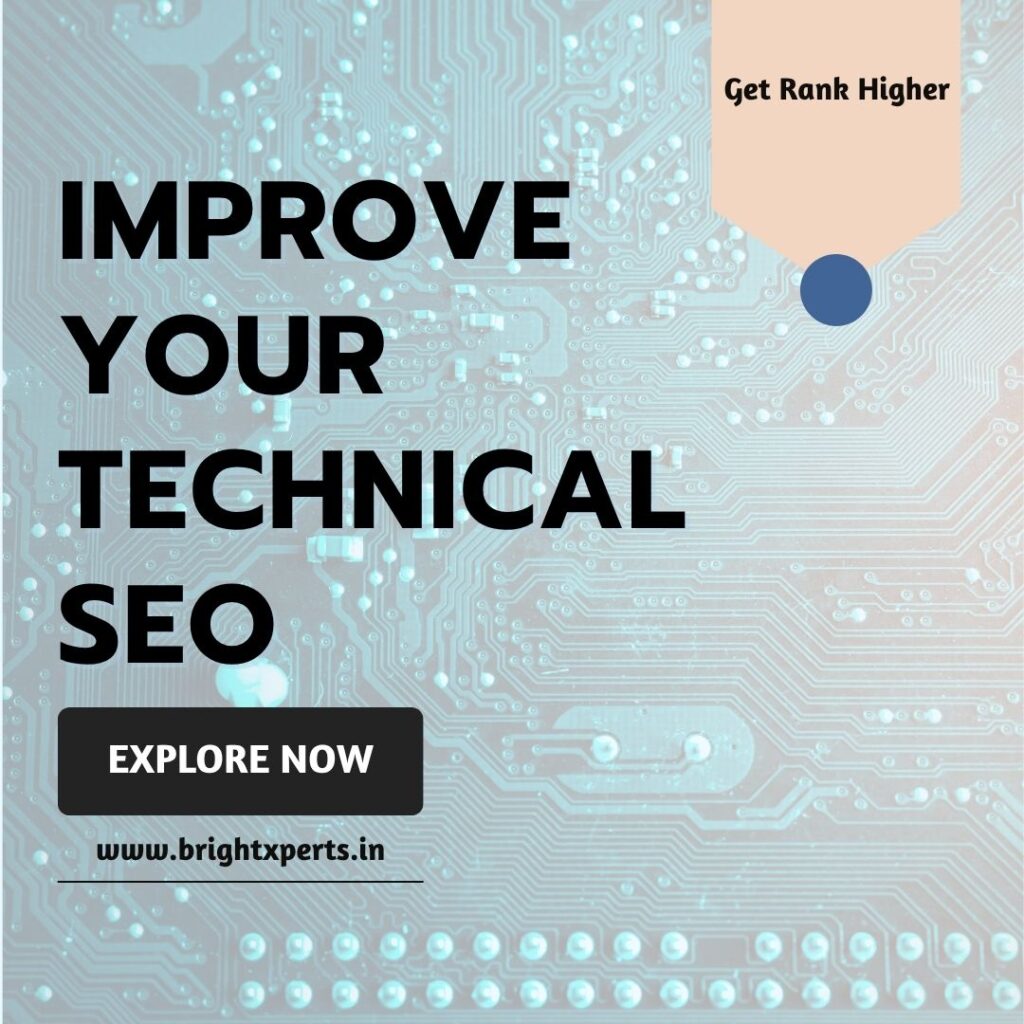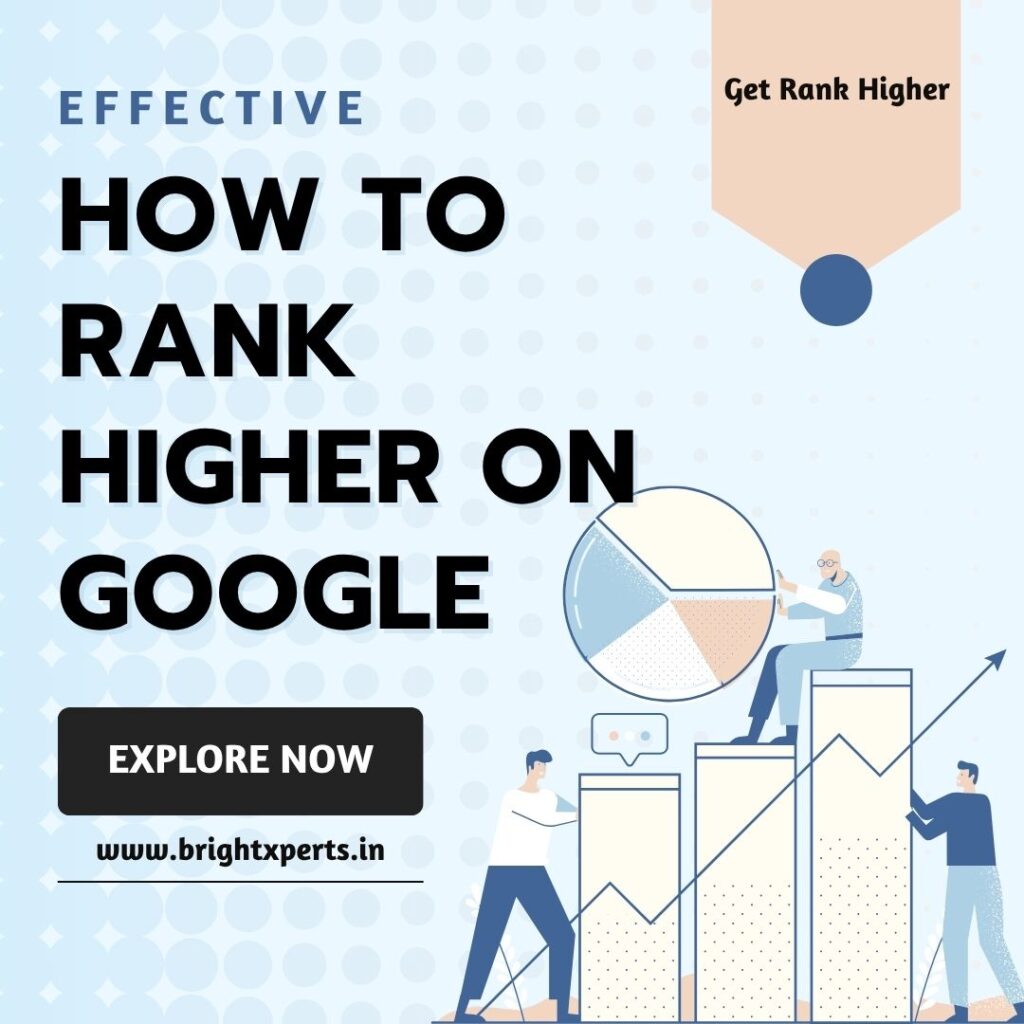Getting a Rank is not an easy task for every website. It is challenging to rank on any keyword because you have numerous competitors worldwide. We will tell you how to rank higher on Google without facing any consequences for your content or search keywords. Only high-quality, informative, or relevant content is preferred. Users want accurate information, but if you provide bad quality content or irrelevant content, you will not get a high rank on Google.
Current Algorithm preferences are high-quality content with good quality backlinks or user experience of your content page. Lowering the bounce rate helps the higher the chances of getting ranked higher than competitors’ content. Must ensure the technical requirements for Google crawlers are better understood, so that they can easily crawl our content and get ranked on search keyword queries.
Understanding Google’s Ranking Criteria
Google follows all your content and the relevancy of the topics. Authority or backlinks play a major role in your ranking factor. All your hidden agendas to rank up on the keyword are fine, but SEO optimized content also helps you to rank your content. Some New features of AI search optimization are also needed to rank up your game of content.
Answer engine optimization or generative search optimization, these are two seo versions to rank your content on AI search engines’ results. Want to know what AEO or GEO is? Check our article for your vision. Also, Keyword research for your article is crucial because high-quality content on the keyword is informative content, which is good for your business or as a freelance blogger.
Keyword Research And Optimization

Knowing about your content keyword or for search keyword query is good, but you also need optimization of your keyword to attract more users. Identify high-value keywords. Start by using tools like Ahrefs, SEMrush, Google Keyword Planner, etc., which help you to identify which keywords are best for your article and know the keyword difficulty score or volume on that keyword.
The higher the volume on that keyword or high difficulty, which means hardly to get ranked on the first page, but you get traffic because of the high volume on that keyword. Focus on long-tail keywords for long-term traffic sources, You need to increase your organic traffic, so choose long-tail keywords. Address your competitor’s content on that keyword and find gaps in your content; you provide comprehensive information on that topic and increase your topical authority.
Search Intent Keywords
Know about which type of content you have to write for your business needs, the search intent of customers differentiates your content from others, and you get profit from that. Categorize your content with search intent keywords, like informative keywords. how to Build a home kitchen. This is an informative keyword that includes information for building muscle.
You can use navigational keywords for any local shop in a particular area. For example, (best digital marketing agency in Noida) or any shop name. The user will get the location of the marketing agency.
Commercial keywords for products like (phone gadgets or accessories) are used for the visibility of your products. Use transactional keywords for the purchasing intent of the buyer, for example, (Buy protein powder now). You have to think customer’s point of view. Because you wrote for them.
Brand-focused keywords just focus on a particular brand, which helps to increase brand awareness for buyers. You know where to use which type of keyword for your article. You know what you want to write information for your customers, so choose keywords with solutions to their queries, understand the search intent of queries, and tailor your content with keywords. Imply relevancy with the keyword and do not do keyword stuffing, as it is not good for your valuable content.
How to rank higher on Google with high-quality content
With keyword relevancy, the content is in-depth content written format exceeding 1500 words, which Google favours to rank your content on search keywords. High-quality content means transparent information without any false information for users. Write in a conversational tone for readers and use related subtopics to increase click-through rate.
Use the technical requirement with internal or external links in your content. New answer search optimization means using FAQs in your content, and those answers that users connect to or are related to issues. Keyword density in your content is in mid 1-1.50, and use headings to improve the reader’s readability. Organize your sections for easier reading for users.
Enhancing your content with high-quality in in-depth information for visitors. The focus keyword of your content plays a major role in increasing visibility above your competitors’ content. Be original with your content and provide real value to your customers.
Optimize On-Page SEO

Optimize URL structure and meta Descriptions
Use clean and rich URL structure instead of generic strings; the URL structure is simple and includes the focus keyword. Using action-oriented language in the meta description within 150-160 characters. Call-to-action in the meta description using the focus keyword can help viewers understand how your content is related to their query.
Title tags or Internal Linking & image Optimization
Adding title tags that include your primary focus keyword under 60 characters will improve your rankings in search results for search queries. The issue of internal linking can improve your site’s page structure to guide crawlers. By using descriptive alt text for image optimization.
Use the focus keyword in your first 10% of content with headings and throughout the content. You cannot copy or use other published content for your blog. It is not good for your ranking or the authority of your website.
Improve Your Technical SEO

Fast loading speed with a mobile-friendly design can create a better user experience. Google uses mobile-first indexing, then desktop or tablet indexing, so create accordingly first for mobile. Reduce your image size for a fast loading speed, or remove unnecessary scripts from your site. Your Loading speed is very necessary for a mobile-friendly user experience.
Must Read- SEO for Startups: 10 Exclusive tips for beginners
Make sure your site structure is easy to navigate by both search engine crawlers and users. FAQs, Events, and reviews use these schema markups that can make Google understand your content. Improve your technical seo for users and to improve the rankings of your content.
Submit XML sitemaps on Google Search Console to help crawlers index your content. Audit your site for broken links or 404 errors, which can destroy your rankings. Keep your content updated with a test url is live or not.
Build Valuable Backlinks
Earn Links from valuable, top authority, relevant websites. Write a guest post on other sites and collaborate or write shareable content for sharing. Avoid bad links and do not buy backlinks; otherwise, Google will penalize you. Link your important pages to the most trafficked pages, which can help those pages rank as well.
Boosts your important pages related to other internal links with other posts in your content. Attract backlinks, but do not attract harmful backlinks. This can destroy your website’s authority.
Start building high-quality backlinks to increase your rankings on Google search results.
Improve User Experience (UX)

Provide Valuable, high-quality information to improve your user experience on that content. User experience can play a vital role in the ranking factor; this can reduce your bounce rate or increase session timings and click-through rate. Clear navigation or clear call-to-actions in your content enhance user experience.
Compress your images, use WebP images for high quality with low size, which increases your site loading speed, and users can visit your site without waiting. Use short paragraphs or bullet points that the user can understand, and navigate your content more easily. Use a table of contents that can show all your headings in one area or easily navigate to the user to which information they want.
Simplify your submission forms and ask only for essential information related to your products or services. Use confirm actions after submission of forms. Show User reviews or ask for a review on how they like your content or want improvement for more.
Monitoring Your Traffic
Tracking your traffic on Google Analytics Connect now. See how the user engages with your content. Their session time, bounce rate, or conversion rates are all you can see in Google Analytics. Check your traffic sources and which mode of traffic source of traffic. Check your optimization or quality backlinks for quality traffic. And know your average position on the search engine results page.
Indexing status of your published content, which one is indexed? For real-time user tracking, you can use a plugin like Jetpack, GA4, etc. Check the page bounce rate where the user exits your page. Then you work on these gaps and make a strategy to resolve these types of gaps.
Explore different types of content formats and know how traffic is engaging with them.
Check our Brightxperts Services for your website needs.
Conclusion
Rank your content higher with these follow-ups. These tips can improve your ranking on search keywords. On-page optimization seo, your content matches with search intent and is relevant, which can improve user experience and increase click-through rate with reduced bounce rate.
For long-term stabilization, adapt the new algorithm changes from time to time. Consistency is the key to success in your higher rank with ongoing efforts. Ranking your content takes time, and everything you want to achieve requires proper time with consistency. So keep going with your actionable strategies, which can rank higher on Google. Keep progress with new content and stay ahead of your competitors.
Frequently Asked Questions (FAQs)
- How does internal linking help improve the website’s rank?
Ans. Internal Linking can boost the ranking of linked pages and easily crawlable by Google to discover your content. Increase user engagement, and they can explore more pages and invest their time on the site.
- How do keywords help in your rankings?
Ans. Keywords help Google understand what your content is about. Proper use in meta descriptions, headings, and titles. Improve your rankings on the results page and visibility to relevant search keywords.
- Does site loading speed or page speed matter for SEO?
Ans. Yes, Site overall loading speed or page loading speed matters for user experience and reduces your page bounce rate, which is good in optimization and improves your ranking signals.
- How much time does it take to see ranking improvements?
Ans. It takes three to six months to see noticeable improvements in your rankings, but it depends on your content quality, competitors, and site authority. Keep your progress on for ranking higher.


Pingback: TOP 7 Web Hosting & Domain Services Providers in the World - Brightxperts.in